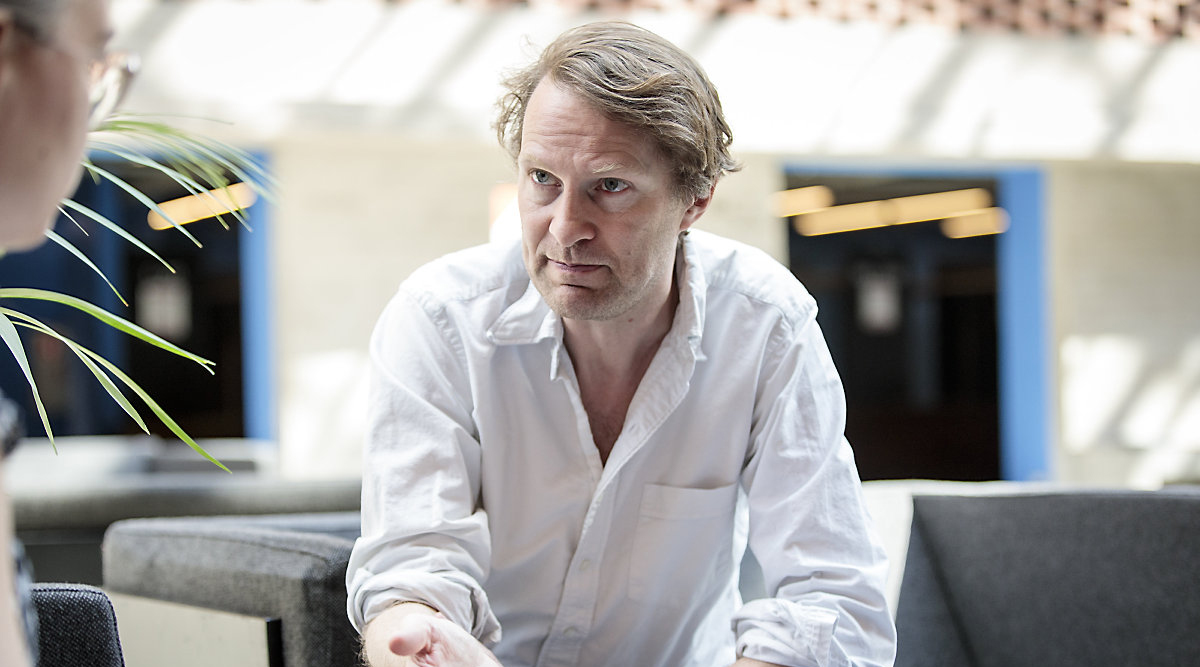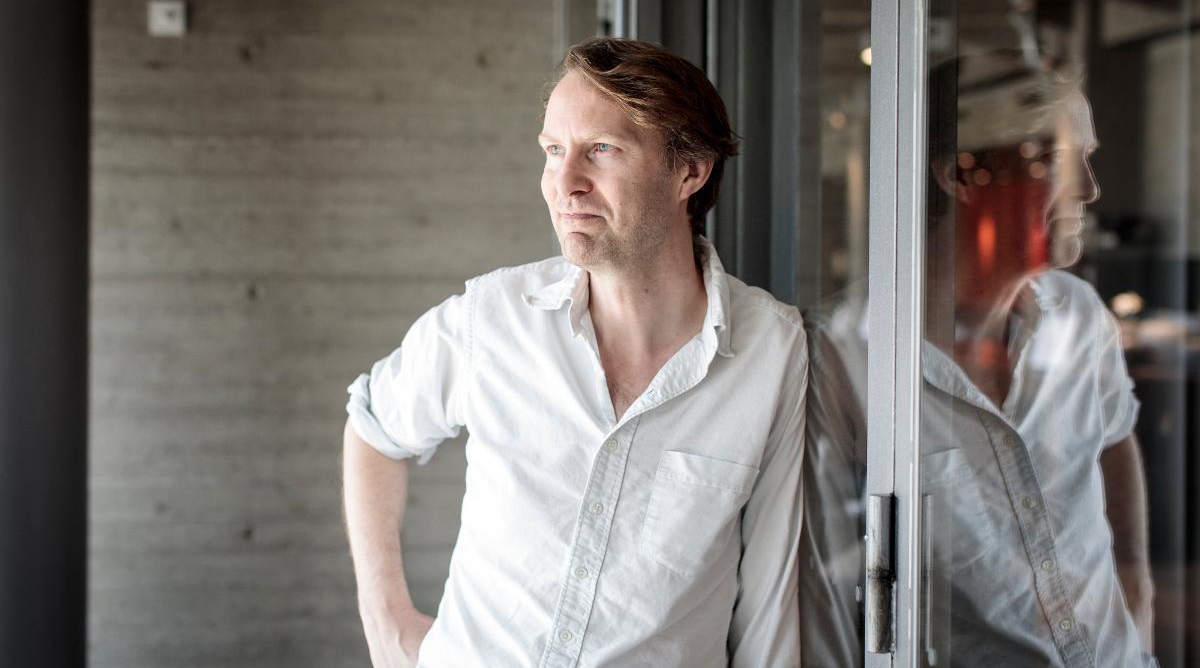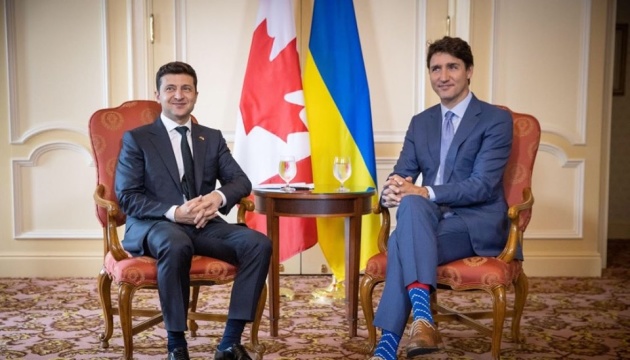10.09.2020 11:45
Luke Harding is a foreign correspondent for The Guardian, who was expelled from Russia in 2011 for a scandalous interview with disgraced oligarch Boris Berezovsky.
He is the author of the book "Mafia State" in which he argued that in Russia it is impossible to separate the government from the criminal world as organized crime and law enforcement agencies have become one entity. Harding was one of the journalists to whom Edward Snowden passed classified information from the U.S. National Security Agency. In 2011, Harding and David Leigh published a book entitled "WikiLeaks: Inside Julian Assange's War on Secrecy" about Julian Assange. The film "The Fifth Estate" was partly based on the materials of the book. Harding's book "The Snowden Files: The Inside Story of the World's Most Wanted Man" was published in 2014. It also served as the basis for the blockbuster film "Snowden." In his new book, "Shadow State," he writes that back in 2017-2018, representatives of Yevgeny Prigozhin's Internet Research Agency discussed the possibility of stoking racial tensions among African Americans. Tetiana Popova, a TV presenter of the Dom television channel, was talking to Harding.
Question: How is it to be a personal enemy of Putin? What were the methods for assessing Putin's wealth which you describe in your book "Mafia State"?
Answer: I guess it's a mixture of sort of personal experience and also having sources inside Russia plus people, who were part of the regime, who, when I was in Moscow, wouldn't talk to me. And then, of course, they all run away to London and then they will talk openly about what's going on.
I mean just to say briefly I was or I am a career foreign correspondent with The Guardian newspaper.
I arrived in Moscow, having previously worked in Berlin and in Delhi. And I thought that Russia was a sort of semi-democracy.
And it became pretty clear that it's not. That it's a corrupt and aggressive revisionist power run by ruthless people.
I found this out because there were a series of break-ins at our Moscow apartment which, we were told by the British embassy, were carried out by the FSB – Putin's spy agency.
Question: As far as I understand, you communicated personally with Assange and Snowden. Who are these people in communication, in life?
Answer: I never met Mr. Snowden because by the time Snowden went to Moscow I was already expelled from Russia. As far as I'm aware, you know I'm blacklisted and I can't actually travel to Moscow anymore.
I met Julian Assange in 2010 when he was working with a number of journalists, including from my newspaper, on the release of classified U.S diplomatic cables, which painted a pretty unflattering portrait of Russia and described Vladimir Putin as head of a mafia state. I worked with Julian on that and wrote a book about it. Subsequently, he fell out with The Guardian, but I have to say I do support his struggle to avoid being extradited to the United States which is going on at the moment. For what he did in 2010 which I think really was journalism rather than anything else.
Right that was a huge victory for Edward Snowden because if you remember back in 2013 the reason he decided to leak all of these secrets from the National Security Agency in America. And fly to Hong Kong where he met with my colleagues from The Guardian.
Question: A court in the United States declared illegal the surveillance of the special services uncovered by Snowden. Because collecting records of telephone conversations of U.S. citizens without the permission of the courts violates the Foreign Intelligence Surveillance Act. What do you think about the fate of Edward Snowden?
Answer: Snowden thought the U.S government was doing basically spying not only on American citizens, but on everybody including citizens of my country, of Ukraine and elsewhere. He thought this should not be done without a kind of proper conversation and what he has started at least is a discussion about the boundary between privacy in the 21st century and modern technology and the capacity for nation states to seize all of our communications, our emails, our phone data and so on.
I really think he is a great figure. He's paid a big price. I think he's stuck in Russia forever. People accuse him of being a Russian spy but I really don't think he is a Russian spy. I think he is a genuine whistleblower and we should all be grateful to it.
Question: Your professional activities and high-profile publications do not cause optimism among the leaders of a number of countries. In addition to the ban on entry to Russia, did you feel other elements of the attention of the special services, and how was this experience?
Answer: It's pretty clear that Kremlin doesn't like me very much and obviously I was case out of the country and I get pretty frequently attacked on social media by Russia's famous kind of troll army based in Petersburg. Also I have to say I'm not very popular in America, at least with the kind of Trump administration.
One of my sources from my books is Christopher Steele, a former MI6 British spy, who wrote the famous dossier, which said that the Russians had compromise on Donald Trump.
Therefore, I get regular abuse from Trump supporters who say that I'm fake, it's a hoax and so on.
It does not really bother me because I think actually that my kind of portrayal of Russia is a kind of dark state that wants to reshape the world it is right. And you know, of course, you get a little bit of abuse but I think it we carry on and it's important more than ever in a time when we have politicians all over the place who lie routinely.

Question: During our first conversation, you said that in the Western countries Russia used the methods of hybrid warfare, which were tested in Ukraine. Which instruments did you mean?
Answer: What I meant, Tetiana, was this mixture of force for military solutions with quite sort of sophisticated social media targeting. It's almost as if you know with one hand you are using tanks, heavy artillery, men who are sort of formally not associated with the Russian army but are clearly linked to Russian military structures. On the other hand, you have young cynical people sitting in a troll factory, pumping out anti-Ukraine messages, and it's a form of sabotage because it's a sort of war for physical territory.
We've seen Ukraine's borders changed by force in 2014 in the annexation of Crimea, but it's also a war for the mind, it's an attempt to create a kind of different reality in people's heads and to push narratives which have got nothing to do with truth.
This has really been perfected by the Kremlin in the near broad in Ukraine in particular and then it's been rolled out into western countries. I think most people only woke up to this after 2016 when Kremlin trolls massively played with the minds of American voters to try and discredit Hillary Clinton and to help Donald Trump.
Question: How can the Western world find a balance between the need to adequately respond to the aggressive actions of the Russian Federation and at the same time comply with the requirements for the observance of basic human rights?
Answer: It's a very good question and I think one thing that we have learned from people like Christopher Steele who wrote the Trump dossier and from others is that Russian spies are not like something from an old movie where they appear as these stiff figures wearing a military uniform with epaulets. They are oligarchs or regular people or businessmen or students or whatever. Who are clever, they read books, they love their children. But actually what they're doing is a form of espionage and they are kind of informal or formal Kremlin assets.
I think western society, including in my country, hasn't really understood this sufficiently. We had a big report recently published by the British parliament's intelligence and security committee it was called the "Russia report."
It essentially said that that London was Londongrad, had become a haven for money laundering for people from Moscow, not all of them bad but many of them linked to the Kremlin. That there was a whole network of British people lawyers, real estate people, PR people who had been hired by the Kremlin.
Essentially by Kremlin figures to advance Russia's geopolitical agenda and I think it's a sort of dangerous situation. Everybody is broken. Western countries need money and investment we have the coronavirus. At the same time, so much of this money that comes from Moscow is black money which comes with a political agenda.
Question: Active preparations are underway for the November G20 summit. The Russian Federation did everything (the poisoning of Navalny, the ongoing annexation of the Republic of Belarus, the ongoing occupation of Crimea and Donbas, Russia's interference in the internal affairs of Syria, Lebanon, Libya and dozens of other countries) so that international security issues would definitely be the focus of this meeting. What is your prediction: will the international community be able to find methods to stop Russia? What could they be?
Answer: I think two things, first of all, is to understand what's going on and how Putin and the people around him think. And essentially, you know, Vladimir Putin is not interested in win-win mutual solutions. He is a classic zero-sum thinker. He thinks that what is bad for Ukraine and the west is good for Russia and vice versa.
He has a kind of paranoid mentality - KGB mentality. Going back to the Cold War where he really sees Russia surrounded by enemies and in the state of permanent of unofficial war with western countries.
So, first of all, politicians need to understand that and, secondly, of course, no one wants conflict with Russia especially after what happened in Ukraine.
So the answer is sanctions! We have some sanctions already against Kremlin figures but they need to be bigger and broader and include family members, travel bans, freezes on bank accounts.
Because what do you have to understand about the Russian regime it is at home hyper patriotic, very nationalistic. You know "Crimea is ours" and so on. But in reality, the people at the top what they really care about is their money. They're billionaires and to lose their money, to lose access to western markets is very very painful.

Question: In your book "Shadow State" you write that back in 2017-2018, representatives of Prigozhin's Internet Research Agency discussed the possibility of provoking African Americans into interracial conflicts. Do you think it was expressed later in the Black Lives Matter Movement?
Answer: We have to be clear that Putin is not an all-knowing evil genius who sort of sits behind the desk, with a console of red flashing lights pushes a button, so that something will happen in Kyiv or in London, or in Washington and so on.
That's not right. He is a classic KGB opportunist whose attitude is "let's try it and see if it works." And what he does in the way the KGB used to do is to identify sniff out weaknesses in other societies, other people's countries and to try and exploit them.
So Putin doesn't start the fire but he's the person who kind of creeps out from the side and puts paraffin on the fire.
That's what we've seen in America with Black Lives Matter. These racial tensions exist regardless of Putin or not. But what he's been trying to do is to sort of create a state of almost cold civil war in America. Ethnic war, political war and so on. And to exacerbate those problems which are there already.
I have to say that Donald Trump has been an accomplice in this. Putin has been so successful that actually he can almost step out.
Question: In your latest book, you also point to the rather active influence of Russians in the Brexit campaign. Could you tell the audience what exactly was going on?
Answer: What you have to understand is that the same push that happened in America by Kremlin spies and social media trolls also happened in the United Kingdom, in my country, because Putin hates the European Union and supports Brexit.
Because he thinks it will damage Brussels, damage the EU and weaken Britain economically and politically. What we saw in 2016 was, first of all, a big huge social media campaign to push hot button issues like immigration from the EU, from Syria and so on. And to push pro-leave, pro-Brexit messages.
So there was social media but there was also classic espionage involving the Russian embassy in London. Even the Russian ambassador at the time, Alexander Yakovenko, who met with key figures from the Brexit campaign one of whom gave an enormous political donation of about almost nine million pounds. Yakovenko was offering this individual called Aaron Banks a gold deal opportunity. To invest in Siberia gold mines. Then a diamond deal and then another gold deal.
There was even a Russian spy at the leave victory party in the summer of 2016. What I find very depressing is the British government of Boris Johnson does not want to investigate what happened because they support Brexit. So for political reasons they are looking the other way if you like.
Question: Luke, you have been studying the methods of Russian influence for a long time. And perhaps you have recommendations on how to resist it. As you know, the ceasefire lasted for about 1.5 months in Ukraine. Several days ago, the head of the so-called "DPR" announced the planned shelling of Ukrainian positions. And the positions were shelled in several places. One soldier was killed and one was wounded. All this is happening against the background of local elections, where it is beneficial for the Russians to promote the pro-Russian party of Viktor Medvedchuk. How do you think the situation may develop further and how should Ukraine react to such Russian operations?
Answer: Ukraine has been on the front line and is on the front line. You know I've been to Donetsk and Luhansk. I was reporting for The Guardian from Ukraine in 2014 and saw everything happen there but also figuratively I mean Ukrainian struggle more than any other country from Russian interference. What Vladimir Putin is very good at is tearing the dial up and then turning it down depending on his strategic need. With elections coming up, of course, he wants to kind of interfere and undermine some candidates and to push other candidates that he prefers.
I think there are no easy solutions. The answer for Ukraine, which your viewers will perfectly understand, is reform that actually Ukraine needs to kind of reform itself it needs to have.
I mean it's not for me to kind of give advice but maybe to try and clean up corruption. To adopt kind of European standards of transparency. To ensure that the courts are fair, that you can't buy justice.
I think the more that actually Ukraine can move away from the kind of Russian model towards European model, the better it will be in the long term and the easier it will be for Ukraine to stand up to Russian abuse.
The other thing I would say is media. It's important that there's this good free fair impartial media in Ukraine which too often in the past has been run by and owned by oligarchs. So good media and good governance is the answer in my view.
Dom television channel
Photo credit: White Noise, Hameen Sanomat





















